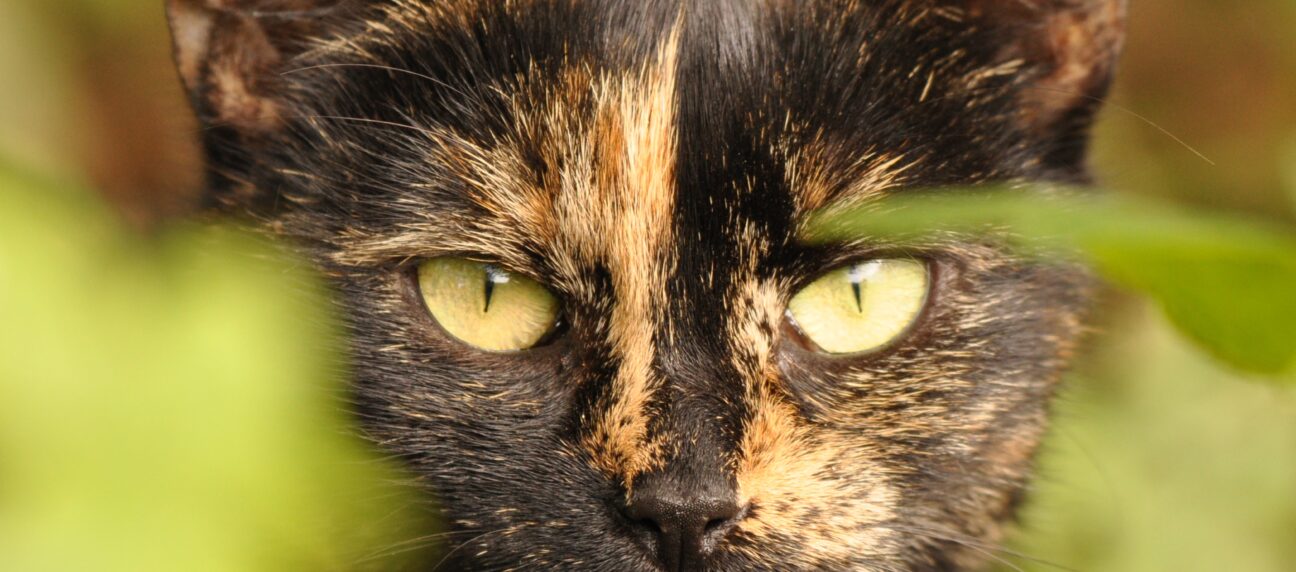Have you ever been curious about the mysterious beings known as Jinn in Islam? You’re not alone! These enigmatic creatures have captivated the minds of many for centuries. In Islamic theology, jinn are believed to be supernatural beings created from smokeless fire, existing alongside humans but in a parallel world.
Their ability to interact with human beings and influence our lives adds an extra layer of intrigue. With this post, you’ll uncover what jinn are, their role and significance in Islam, as well as debunk some popular myths. Get ready to explore a fascinating aspect of Islamic culture that will leave you both intrigued and informed!
The Origin and Creation of Jinn
Have you ever wondered where jinn come from and what makes them so mystical? The creation and origin of jinn are deeply rooted in Islamic tradition and help explain their unique characteristics. By exploring these elements, you’ll gain a clearer understanding of these captivating beings.
The Meaning of Jinn in Arabic
The word “jinn” stems from the Arabic root “j-n-n,” which means to hide or conceal. This root is used to describe things that are hidden and cannot be seen by the naked eye. In this context, jinn are beings that exist but are usually invisible to human perception. Interestingly, the word “jannah” (paradise) also shares the same root, alluding to the idea of a hidden or unseen paradise.
Jinn are described as unseen spirits that can appear in various forms. This etymological meaning emphasizes their elusive nature and mysterious existence. Knowing the linguistic background helps us understand why these beings are often linked with secrecy and hidden realms.
Creation from Smokeless Fire
One of the most intriguing aspects of jinn in Islamic belief is their creation. According to Islamic teachings, jinn were created by Allah from “smokeless fire.” This fire is unique, described as “scorching” yet without smoke, emphasizing both its purity and intensity. Imagine the intensity of light formed without the impurities of smoke—it’s indeed a mesmerizing concept.
Two primary sources— the Quran and Hadiths—shed light on this belief:
- Quran: In Surah Ar-Rahman (55:15), it is stated: “And He created the jinn from a smokeless flame of fire.” This verse highlights the unique material from which jinn are formed, distinguishing them from humans and angels.
- Hadith: In a famous Hadith, the Prophet Muhammad (peace be upon him) said: “The Angels were created from light, the jinn were created from smokeless fire, and Adam was created from what has been described to you.” This Hadith underlines the different substances used in the creation of these beings, further emphasizing their unique nature.
The belief that jinn were created from smokeless fire sets them apart from other creations like humans, who were made from clay. This difference in origin explains much of their behavior, abilities, and how they interact with the world.
By knowing these details, you can start to see why jinn are so fascinating. They are not just mythical creatures but are deeply embedded in Islamic theological foundations with a unique origin story that stirs the imagination.

Types of Jinn
When you dive into the world of jinn, you’ll find that there are various types with distinct characteristics. Just like humans, jinn can be good or evil. To help you understand better, let’s explore the different types of jinn.
Good Jinn and Evil Jinn
Just as people can be good or bad, the same applies to jinn. There are good jinn, referred to as Muslim jinn, who follow the teachings of Islam and are righteous. On the other hand, evil jinn, known as non-Muslim jinn, do not follow Islamic teachings and often cause harm.
Muslim jinn lead a life of worship and can be helpful to humans. Their actions are aligned with the principles of good, and they seek to live in harmony with the divine will. You might even say they’re like the pious neighbors you wish you had—always polite and helpful.
In contrast, evil jinn, often associated with mischief and malice, can be very troubling. One notorious category is the Shayatin. The term “Shaytan” (plural “Shayatin”) is often used to describe jinn who serve Satan and work to misguide humans. Think of them as troublemakers who delight in causing chaos and leading people astray.
Famous Categories of Jinn
Islamic texts mention various categories of jinn, each with its own unique traits and powers. Here are some of the most famous ones:
Ifrit: Known for their strength and cunning, Ifrit are considered among the most powerful types of jinn. Traditionally, they are depicted as entities who possess immense force and are difficult to control. Imagine a blend of a trickster and a strongman, operating in the shadows.
Marid: According to folklore, Marid are even more powerful than Ifrit. They are known for their size and boastful nature. Marid can grant wishes, but usually demand something steep in return. Think of them as the ultimate genies—capable of great feats but always at a cost.
Ghoul: Quite the opposite of the benevolent jinn, Ghouls are often linked with graveyards and deserts, preying on unsuspecting travelers. These jinn are akin to mythical monsters, with an appetite for creating havoc. Picture a creature out of a horror story, lurking in the dark.
Understanding these categories can help you grasp the complex and multi-faceted nature of jinn in Islamic lore. By knowing about the various types, you can better appreciate the diverse attributes and powers attributed to these fascinating beings.
Abilities and Powers of Jinn
Jinn, as described in Islamic beliefs, are mystical beings endowed with extraordinary powers and abilities. These supernatural traits have long fascinated and even frightened those who have heard tales about them. Knowing about these abilities can give you a deeper appreciation of what makes jinn so unique and compelling.
Shape-shifting and Invisibility
One of the most astounding beliefs about jinn is their ability to change their forms and become invisible. Imagine the freedom to roam the earth unnoticed or transform into any creature or object at will. This ability is mind-boggling!
Shape-shifting: It is believed that jinn can morph into animals, humans, or even inanimate objects. Picture a cat that suddenly scurries away and morphs into a person the moment it’s out of your sight. This ability allows jinn to navigate the world in ways that are virtually impossible for humans.
Invisibility: The concept of jinn being invisible to the human eye ties back to their creation from smokeless fire. This transparency gives them a significant edge, making them unseen observers and influencers in our daily lives. Have you ever felt an unexplainable presence in the room? Some believe that could be a jinn lingering unseen.
Possession and Influence
Another fascinating yet terrifying power attributed to jinn is their ability to possess and influence humans. This belief has spawned countless stories and even the need for exorcisms in some cultures.
Possession: Jinn are thought to sometimes take control of humans, impacting their behavior and actions. It’s like having an intruder hijack your mind and body, steering you away from your usual self. While rare, these stories often highlight a struggle between the human soul and the jinn, requiring spiritual rituals to reclaim balance.
Influence: Not all jinn opt for full possession; some prefer to subtly influence thoughts and decisions. Imagine a voice that whispers doubts into your ear, nudging you towards risky behaviors or negative actions without you even realizing it. This level of manipulation can be quite disturbing, leaving those influenced by jinn feeling unnerved and confused.
Understanding these powers can help demystify the mythical aura surrounding jinn. They’re not merely characters in ancient folklore but are rooted deeply in Islamic theology with a range of abilities that continue to spark curiosity and wonder.

Jinn in Islamic Daily Life
Jinn are not just part of stories and ancient texts; they have a significant role in the everyday lives of Muslims. Understanding how jinn fit into Islamic practices and laws can give you an insightful look into their profound influence.
Protective Measures
You might be surprised to learn that many Muslims practice specific rituals and prayers to protect themselves from harmful jinn. These practices are deeply rooted in Islamic tradition and offer a sense of security and peace of mind.
Reciting Ayat al-Kursi: This verse from Surah Al-Baqarah in the Quran is commonly recited for protection. It’s like a shield, guarding you against any evil intentions from jinn. Think of it as your spiritual armor.
Seeking Refuge with Dua: Many Muslims start their day by reciting specific duas (prayers) that seek protection from harm. Among these, saying “Bismillah” (in the name of Allah) before starting any task can act as a safeguard.
Quranic Verses and Surahs: Surahs like Al-Falaq and An-Nas are also recited to prevent jinn from affecting one’s life negatively. These verses act like whispers of divine protection, wrapping you in a cocoon of safety.
\Ruqyah: This spiritual healing process involves reciting certain Quranic verses and prayers to cleanse an afflicted person. Ruqyah can be compared to a spiritual cleanse, flushing out any negative influence from jinn.
By integrating these practices into their daily lives, Muslims can create a strong spiritual barrier against the influence of jinn. It’s almost like having a daily ritual for good vibes, ensuring jinn remain in their realm without crossing into our world.
Jinn in Islamic Law
Did you know that jinn are considered accountable for their actions under Islamic law? Much like humans, they are judged based on their deeds. This accountability adds another layer of complexity to their existence.
Moral Responsibility: Like humans, jinn are believed to have free will and the choice between right and wrong. This means they are subject to the same moral laws, including the expectation to worship Allah and adhere to ethical standards. Imagine jinn being handed the same Rulebook of Life that you have—they’re accountable, too!
Legal Entity: Under Islamic jurisprudence, jinn can commit sins and acts of disobedience. This makes them responsible for their actions, akin to how humans can be guilty or innocent. They will face the same judgment in the afterlife—rewarded for good deeds, punished for the bad.
Halal and Haram: Just as certain practices are forbidden (haram) and others are allowed (halal) for humans, the same applies to jinn. The famous story of the Prophet Solomon (Suleiman) showcases how he governed both humans and jinn, holding them equally accountable.
Understanding the legal and moral dimensions of jinn helps you appreciate the intricate way they fit into Islamic teachings. They are not merely fantastical beings but active participants in the moral universe, subject to the same divine rules and justice system.
Jinn in Islamic Folklore and Culture
Jinn have captured the imagination of people for generations, not just in religious texts but also in folklore and modern culture. Their enigmatic presence weaves through stories, movies, and even TV shows, presenting them in multiple fascinating ways.
Jinn Stories and Legends
Across various Islamic cultures, jinn are at the heart of numerous captivating stories and legends. These tales often highlight the mysterious and sometimes terrifying aspects of jinn.
One popular tale from Arabian folklore involves the City of Brass, an ancient, mythical city said to be populated by jinn. The story goes that a group of explorers led by Sulayman ibn Dawud venture into the desert to find this elusive city. Their journey is fraught with supernatural encounters, including shape-shifting jinn and eerie, ghostly apparitions, painting a vivid picture of the jinn’s mysterious powers.
In some parts of South Asia, you might hear about Churels, female jinn who appear as beautiful women during the day but transform into terrifying figures at night. These jinn are believed to avenge wrongs done to them by luring men and trapping them. The story of Churels often serves as a cautionary tale, warning people to stay respectful and kind.
Such stories do more than just entertain—they also reflect the cultural beliefs, fears, and values of the communities they emerge from. They show that jinn are not just a part of Islamic religious beliefs but also a rich component of Islamic folklore.

Jinn in Modern Media
In modern media, jinn are far from being forgotten relics of old stories. They continue to fascinate and inspire creators across various platforms—be it books, movies, or TV shows.
Books: Authors like G. Willow Wilson and P.B. Kerr have brought jinn into contemporary literature. Wilson’s novel Alif the Unseen mixes elements of cyberpunk with traditional jinn lore, presenting them as beings that can hack into digital networks. Kerr’s Children of the Lamp series, aimed at younger readers, chronicles the adventures of twin jinn who live in the modern world, combining traditional myths with modern settings.
Movies: Films like The Wishmaster series delve into the darker aspects of jinn. These movies portray jinn as malevolent entities who manipulate people’s deepest desires, often leading to terrifying outcomes. On the other hand, Kandukondain Kandukondain, an Indian film, offers a lighter portrayal, where a jinn helps the protagonist find true love.
TV Shows: Netflix’s show Jinn, set in Jordan, blends teenager life with supernatural elements, bringing a contemporary twist to the ancient lore. The show explores how modern-day teens interact with jinn, navigating the repercussions of summoning these ancient beings. Another notable mention is Supernatural, which features multiple episodes where the protagonists encounter jinn.
Modern portrayals often add new dimensions to these beings, sometimes deviating from traditional lore but always maintaining an essence of their mystery and power. Whether you read about them, watch their stories on a screen, or encounter them in urban legends, jinn continue to be a source of endless fascination.
Conclusion
Understanding what jinn are in Islam opens up a captivating world of supernatural beings with unique origins and extraordinary powers. Jinn, created from smokeless fire, are distinct from humans and angels, possessing abilities like shape-shifting and invisibility. They can influence human lives in both positive and negative ways, making them figures of great intrigue.
Their diverse categories, from the benevolent Muslim jinn to the mischievous Shayatin, add layers to their complex nature. Protective measures, like reciting Ayat al-Kursi, demonstrate the significant role they play in Islamic daily life. Legal and moral accountability in Islamic law places them on a par with humans, reflecting their integral place in theological teachings.
If you are interested in teaching Quran online or want to learn Quran online join us today by sending us an email on our contact form!



